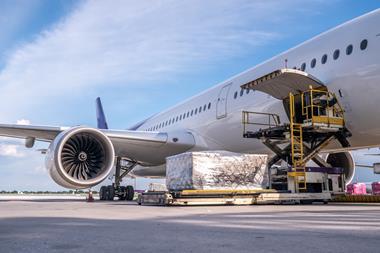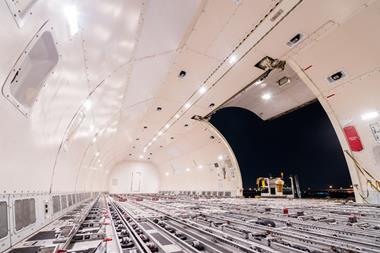The freight forwarding market could contract by more than 7% this year as a result of the coronavirus outbreak, according to a worst case scenario projection from consultant Transport Intelligence (Ti).
A white paper published by Ti also predicted that the air cargo part of forwarders' businesses could take the hardest hit.
In the paper, Ti presented a current and worst case scenario for the coming year. Based on current projections, the forwarding market is expected to contract by 2% but in its worst case scenario the decline could be as much as 7.5%.
The current outlook for air cargo would see a contraction of 2.8%, but the decline could be as much as 7.7%. For seafreight the current outlook would see a 1.1% contraction and the worst case outlook would result in a 7.3% market decline.
"Ti’s Covid-19 Impact Analysis shows a marked fall of -2.8% under the ‘current impact’ scenario in the air market in 2020. However, should current plans for a reopening of economic activity and the restoration of demand in Western markets not come to fruition, then the ‘severe impact’ scenario plays out.
"The airfreight market has also seen a simultaneous boom and bust which can be seen through the differing fortunes of vertical sectors. With production lines closed in much of the West, the transportation of automotive parts and components by air has seen a sharp decline.
"However, massive spikes in demand from the pharmaceutical and healthcare sector, in particular for personal protective equipment (PPE), has offset some of the loss in volumes."
It added: "An easing of lockdown restrictions may see a similar dynamic play out over the second half of 2020 – namely that as demand grows rapidly in reopening Western consumer markets, an air freight bounce may occur as retailers and manufacturers rush to replenish inventories.
"In Ti’s ‘current impact’ scenario, this bounce provides upward pressure on air volumes in the second half of 2020. This early in the crisis it is of course hard to predict the timing of the airfreight market’s out-performance of trade growth, but compelling evidence suggests it will come. Should this effect be delayed further towards 2021, it would have a downside impact on the 2020 data offered here."















